Презентація на тему «Presentation Еxtreme sports»

Presentation Еxtreme sports
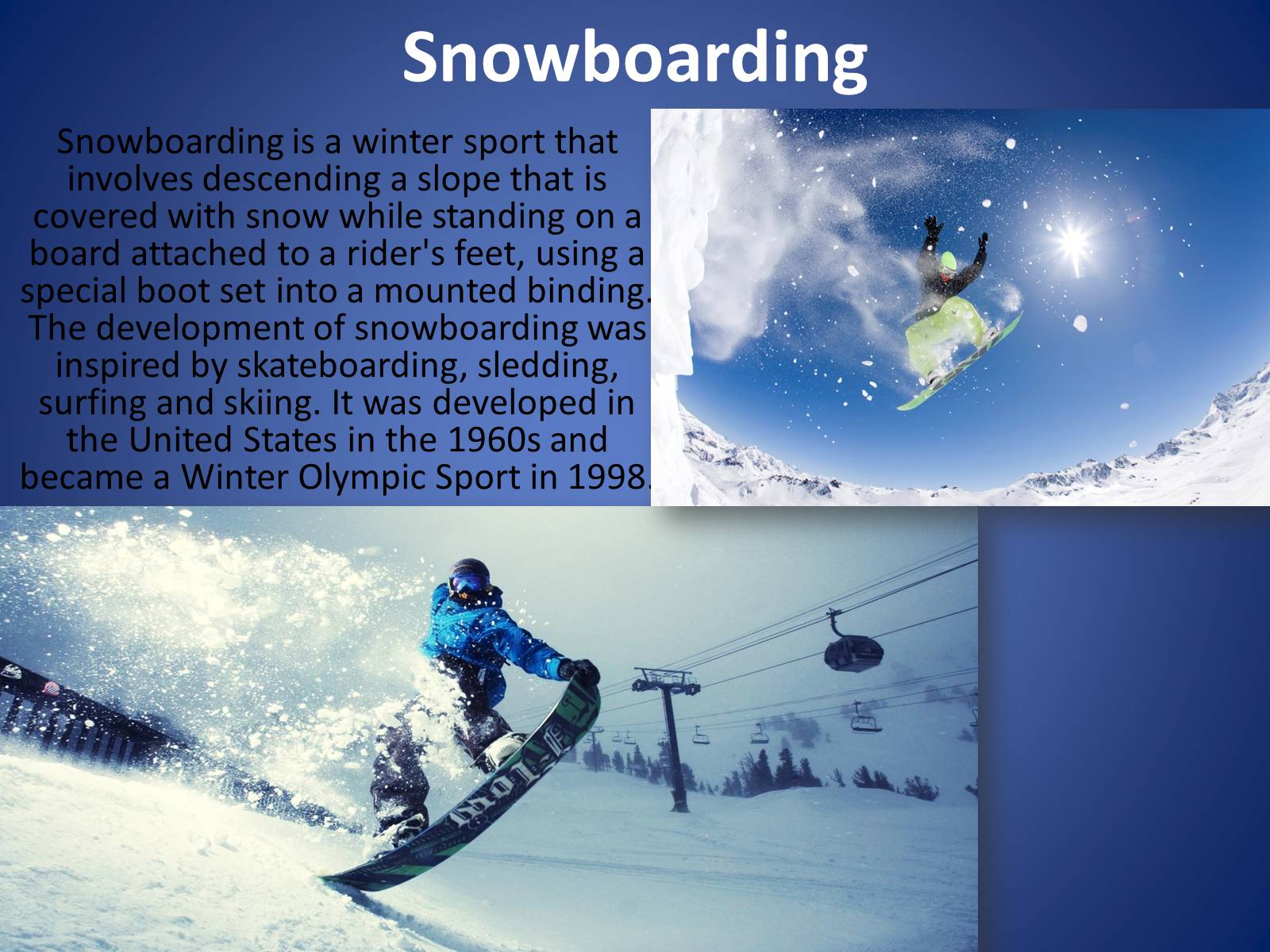
Snowboarding
Snowboarding is a winter sport that involves descending a slope that is covered with snow while standing on a board attached to a rider's feet, using a special boot set into a mounted binding. The development of snowboarding was inspired by skateboarding, sledding, surfing and skiing. It was developed in the United States in the 1960s and became a Winter Olympic Sport in 1998.
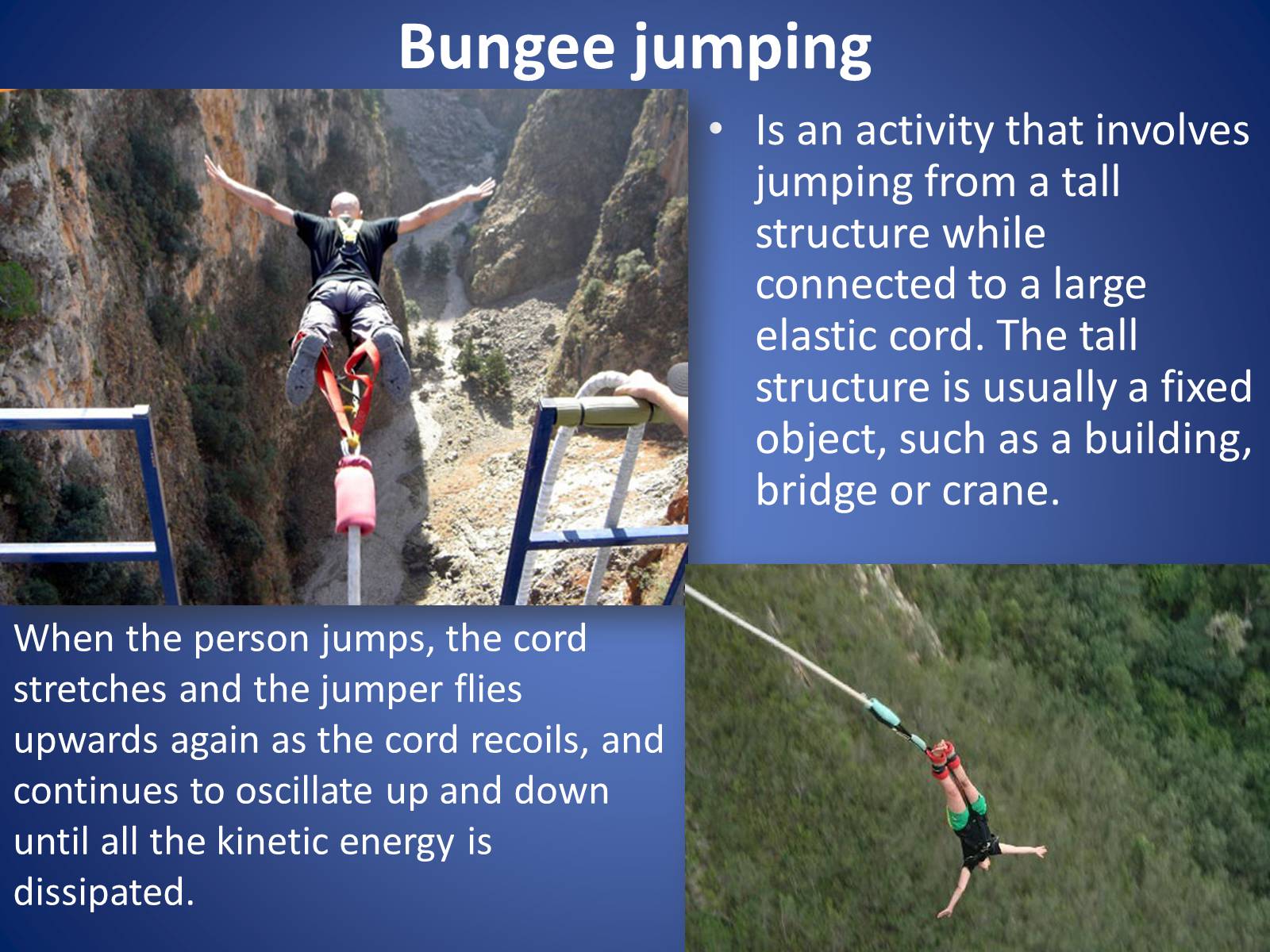
Bungee jumping
Is an activity that involves jumping from a tall structure while connected to a large elastic cord. The tall structure is usually a fixed object, such as a building, bridge or crane.
When the person jumps, the cord stretches and the jumper flies upwards again as the cord recoils, and continues to oscillate up and down until all the kinetic energy is dissipated.
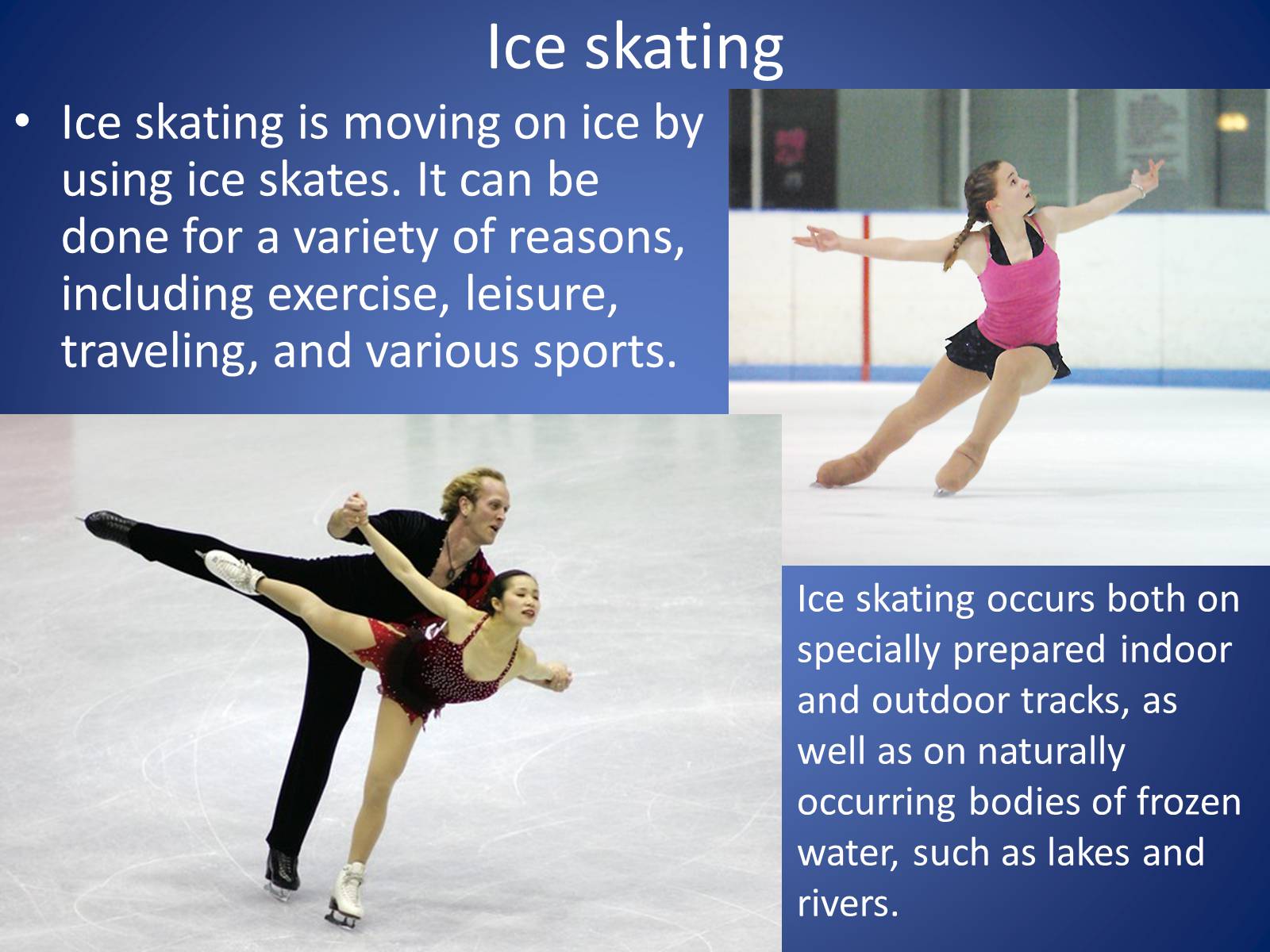
Ice skating
Ice skating is moving on ice by using ice skates. It can be done for a variety of reasons, including exercise, leisure, traveling, and various sports.
Ice skating occurs both on specially prepared indoor and outdoor tracks, as well as on naturally occurring bodies of frozen water, such as lakes and rivers.
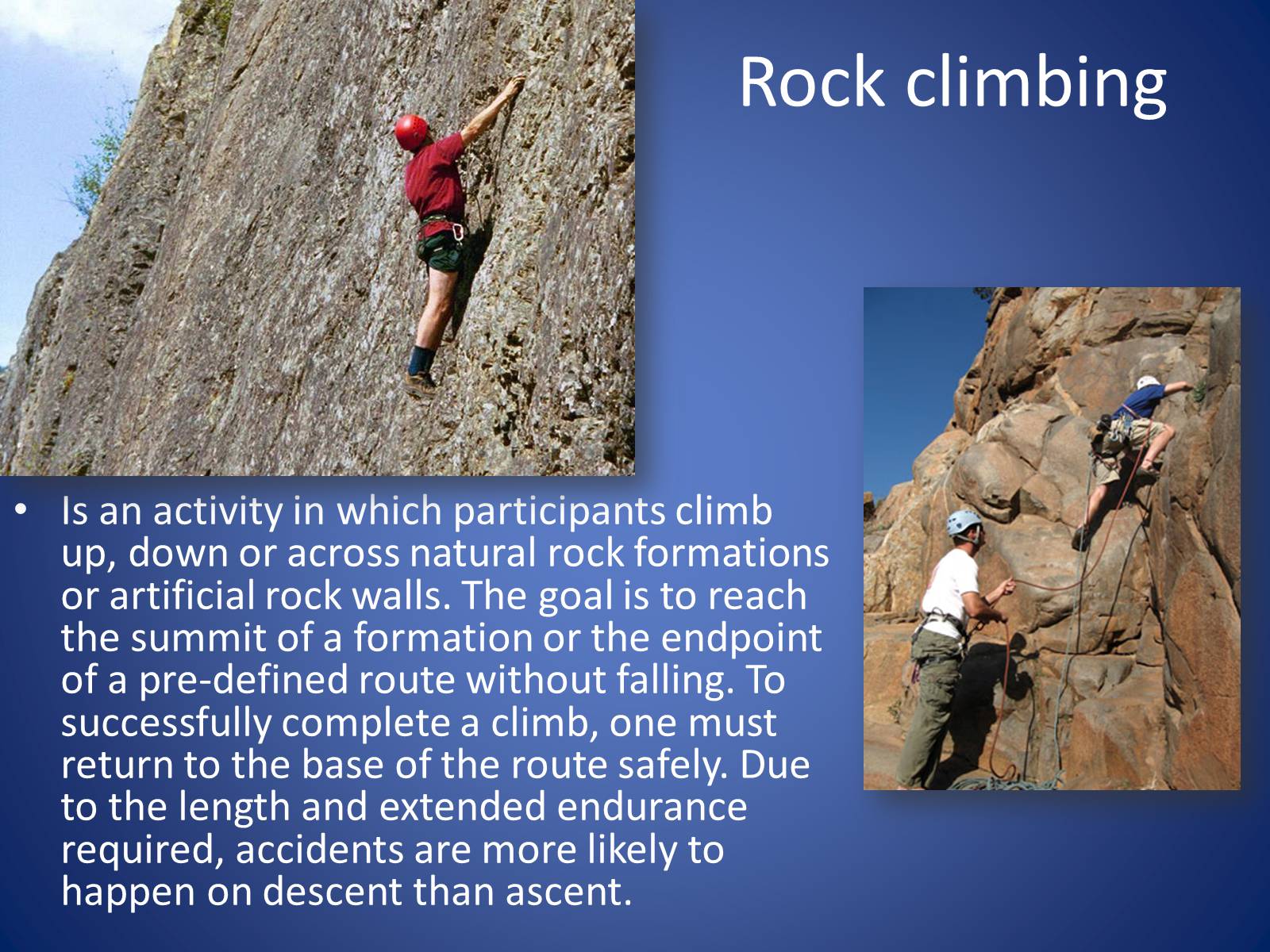
Rock climbing
Is an activity in which participants climb up, down or across natural rock formations or artificial rock walls. The goal is to reach the summit of a formation or the endpoint of a pre-defined route without falling. To successfully complete a climb, one must return to the base of the route safely. Due to the length and extended endurance required, accidents are more likely to happen on descent than ascent.
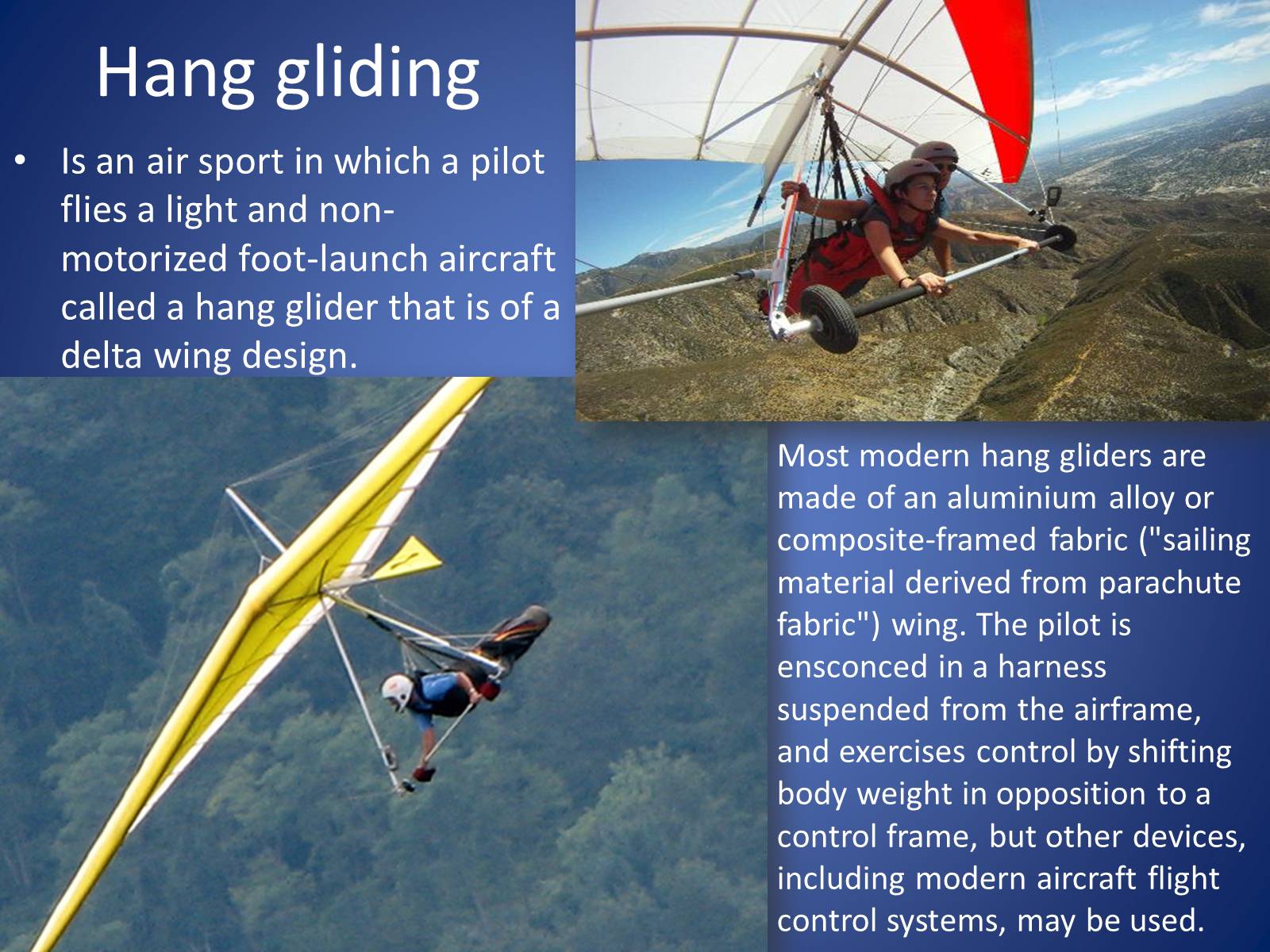
Hang gliding
Is an air sport in which a pilot flies a light and non-motorized foot-launch aircraft called a hang glider that is of a delta wing design.
Most modern hang gliders are made of an aluminium alloy or composite-framed fabric ("sailing material derived from parachute fabric") wing. The pilot is ensconced in a harness suspended from the airframe, and exercises control by shifting body weight in opposition to a control frame, but other devices, including modern aircraft flight control systems, may be used.
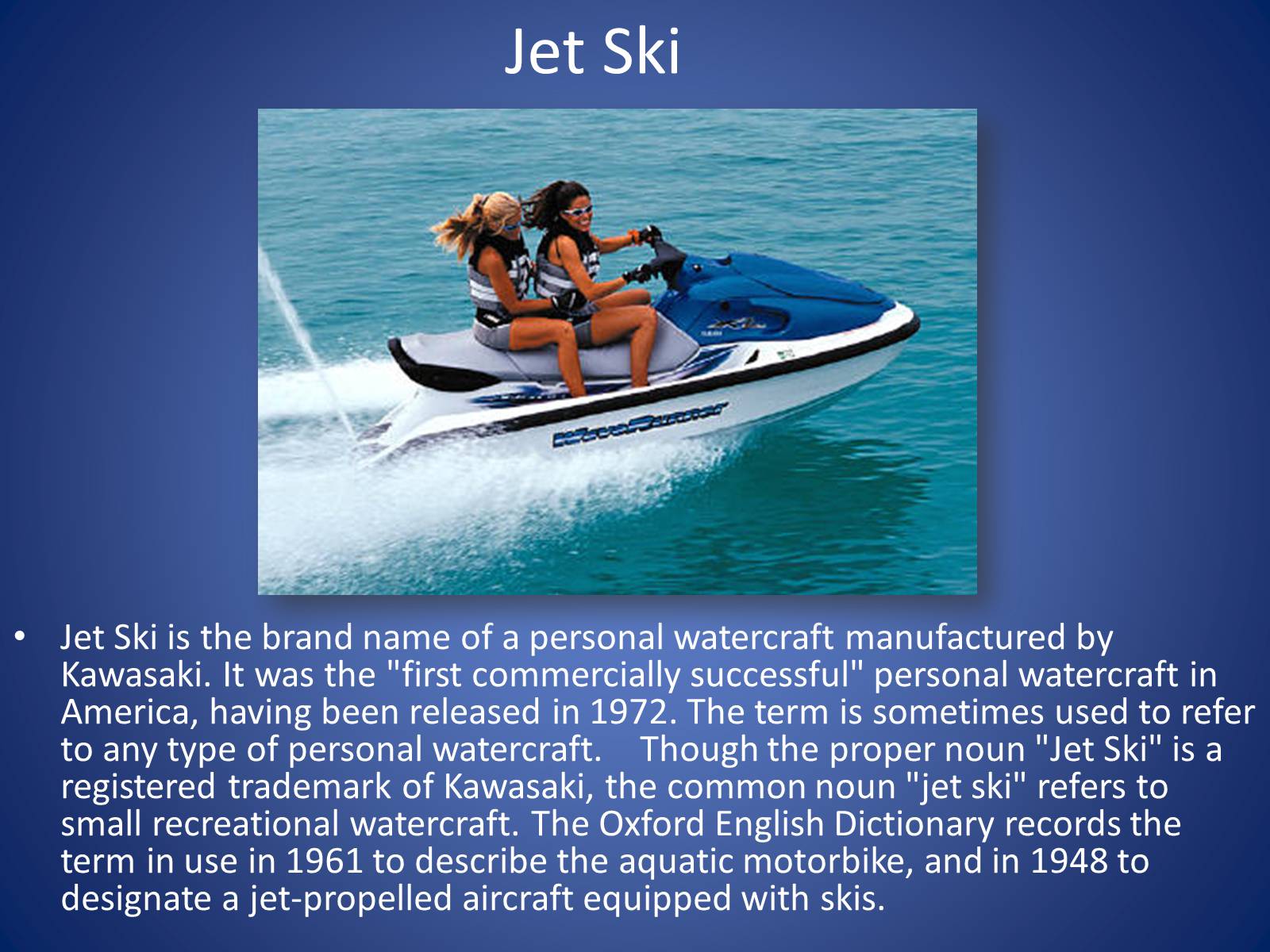
Jet Ski
Jet Ski is the brand name of a personal watercraft manufactured by Kawasaki. It was the "first commercially successful" personal watercraft in America, having been released in 1972. The term is sometimes used to refer to any type of personal watercraft. Though the proper noun "Jet Ski" is a registered trademark of Kawasaki, the common noun "jet ski" refers to small recreational watercraft. The Oxford English Dictionary records the term in use in 1961 to describe the aquatic motorbike, and in 1948 to designate a jet-propelled aircraft equipped with skis.
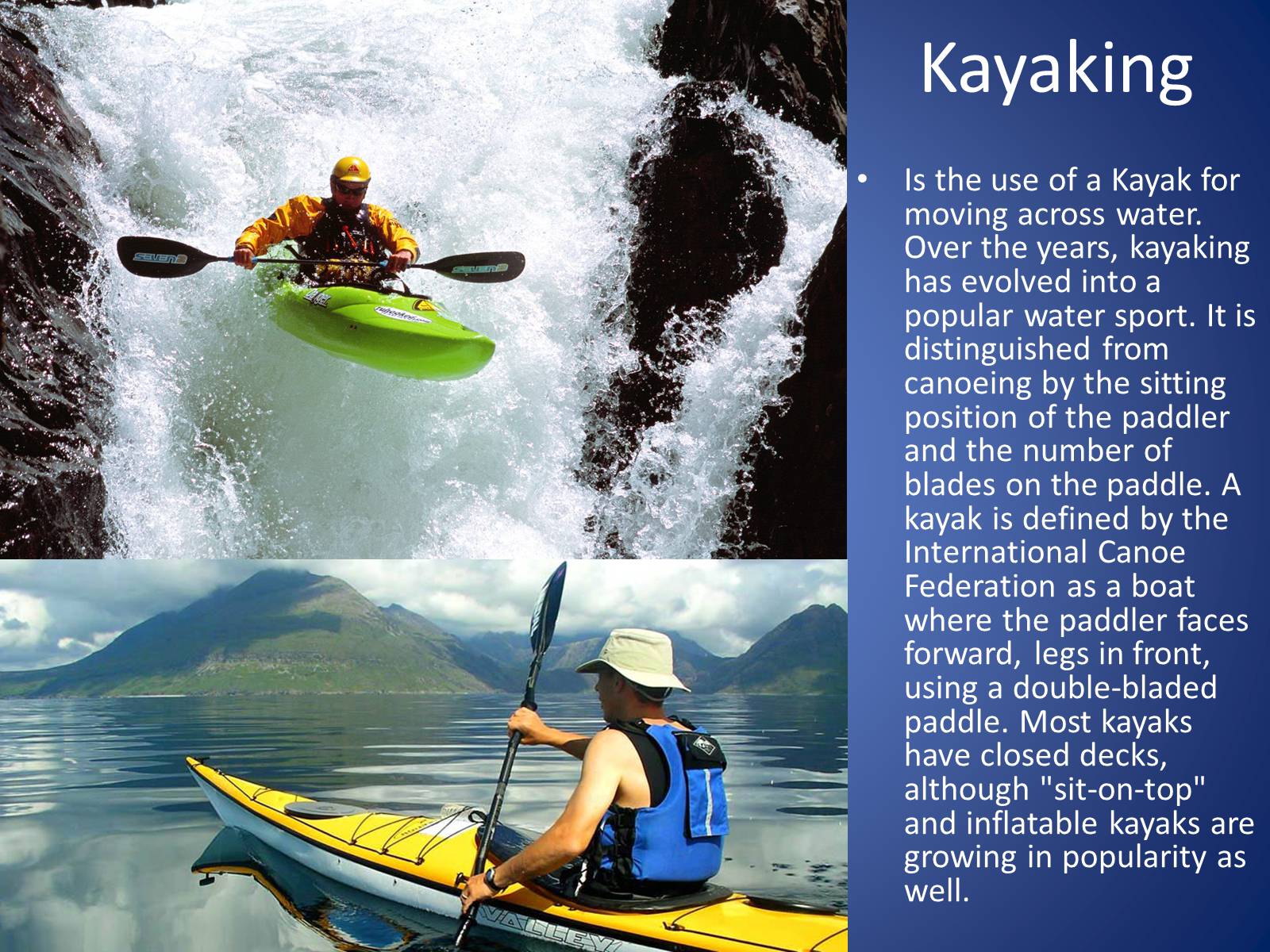
Kayaking
Is the use of a Kayak for moving across water. Over the years, kayaking has evolved into a popular water sport. It is distinguished from canoeing by the sitting position of the paddler and the number of blades on the paddle. A kayak is defined by the International Canoe Federation as a boat where the paddler faces forward, legs in front, using a double-bladed paddle. Most kayaks have closed decks, although "sit-on-top" and inflatable kayaks are growing in popularity as well.

Skiing
Is a recreational activity and competitive sport in which the participant attaches skis to boots or shoes on the feet and uses them to travel on top of snow.
Aside from recreation and competition, skiing has been used for military purposes and travelling in areas that experience heavy snowfall. Until about 1860 skiing was primarily used for practical transport purposes in snow-rich areas, from around 1860 skiing for recreation, exercise and competition was introduced. Many types of competitive skiing events are recognized by the International Olympic Committee, and the International Ski Federation.
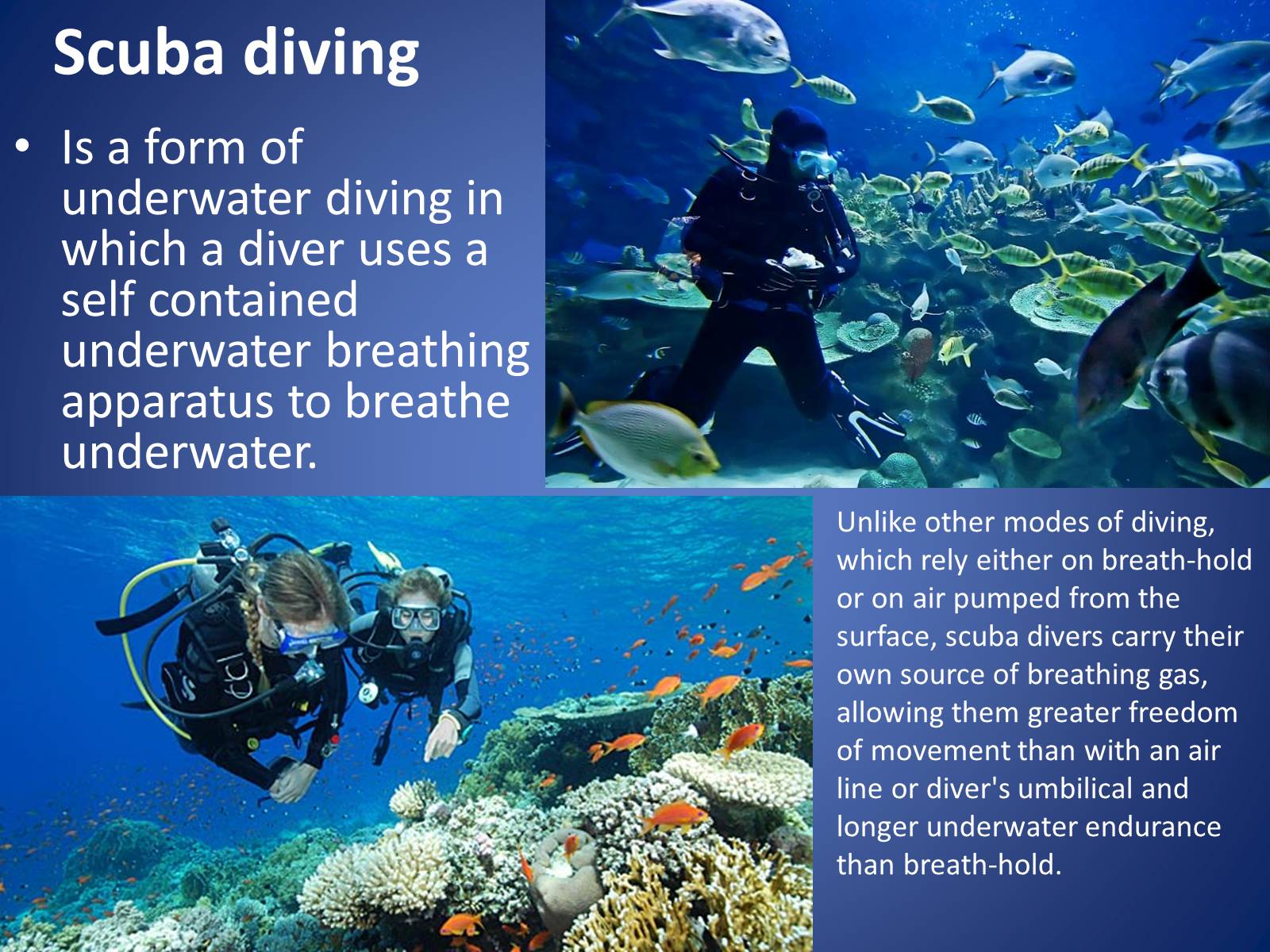
Scuba diving
Is a form of underwater diving in which a diver uses a self contained underwater breathing apparatus to breathe underwater.
Unlike other modes of diving, which rely either on breath-hold or on air pumped from the surface, scuba divers carry their own source of breathing gas, allowing them greater freedom of movement than with an air line or diver's umbilical and longer underwater endurance than breath-hold.

Thank you for attention!)